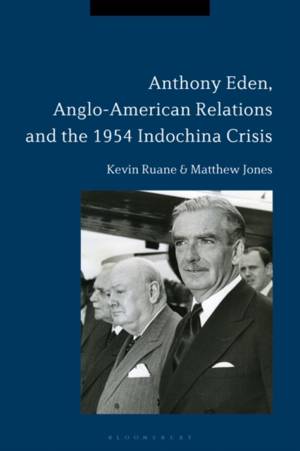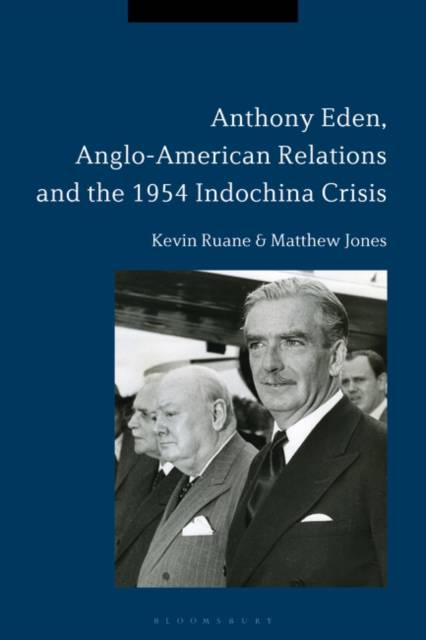
- Retrait gratuit dans votre magasin Club
- 7.000.000 titres dans notre catalogue
- Payer en toute sécurité
- Toujours un magasin près de chez vous
- Retrait gratuit dans votre magasin Club
- 7.000.0000 titres dans notre catalogue
- Payer en toute sécurité
- Toujours un magasin près de chez vous
Anthony Eden, Anglo-American Relations and the 1954 Indochina Crisis
Kevin Ruane, Matthew Jones
Livre relié | Anglais
254,45 €
+ 508 points
Description
In the spring of 1954, after eight years of bitter fighting, the war in Vietnam between the French and the communist-led Vietminh came to a head. With French forces reeling, the United States planned to intervene militarily to shore-up the anti-communist position. Turning to its allies for support, first and foremost Great Britain, the US administration of Dwight D. Eisenhower sought to create what Secretary of State John Foster Dulles called a "united action" coalition. In the event, Winston Churchill's Conservative government refused to back the plan. Fearing that US-led intervention could trigger a wider war in which the United Kingdom would be the first target for Soviet nuclear attack, the British Foreign Secretary, Anthony Eden, was determined to act as Indochina peacemaker - even at the cost of damage to the Anglo-American "special relationship".
In this important study, Kevin Ruane and Matthew Jones revisit a Cold War episode in which British diplomacy played a vital role in settling a crucial question of international war and peace. Eden's diplomatic triumph at the 1954 Geneva Conference on Indochina is often overshadowed by the 1956 Suez Crisis which led to his political downfall. This book, however, recalls an earlier Eden: a skilled and experienced international diplomatist at the height of his powers who may well have prevented a localised Cold War crisis escalating into a general Third World War.
In this important study, Kevin Ruane and Matthew Jones revisit a Cold War episode in which British diplomacy played a vital role in settling a crucial question of international war and peace. Eden's diplomatic triumph at the 1954 Geneva Conference on Indochina is often overshadowed by the 1956 Suez Crisis which led to his political downfall. This book, however, recalls an earlier Eden: a skilled and experienced international diplomatist at the height of his powers who may well have prevented a localised Cold War crisis escalating into a general Third World War.
Spécifications
Parties prenantes
- Auteur(s) :
- Editeur:
Contenu
- Nombre de pages :
- 352
- Langue:
- Anglais
Caractéristiques
- EAN:
- 9781350021174
- Date de parution :
- 25-07-19
- Format:
- Livre relié
- Format numérique:
- Genaaid
- Dimensions :
- 157 mm x 236 mm
- Poids :
- 703 g

Les avis
Nous publions uniquement les avis qui respectent les conditions requises. Consultez nos conditions pour les avis.






